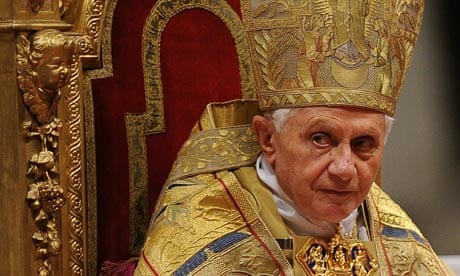The question: Is it wrong to bear true witness?
It's always wrong, says the ninth commandment, to bear false witness; Does that make all true witness right? Surely yes, I'd love to say, yet a searing childhood experience holds me back. Now that all the principals of this tale are all dead, I can reveal the shocking way in which I learnt the perils of pure truth out of context.
It was Christmas 1962, and Auntie Helene had come to stay. For 20 years she had accompanied my Hungarian mother through various war zones and associated vicissitudes of life as a dancer, earning herself an associated reputation in our household for panic and muddle. So firmly established was this association that any family member who made a drama out of a crisis was easily accused of "behaving like Auntie Helene." This was a convenient piece of personal shorthand until at the age of seven, in stripling innocence, I, little Alan, roundly accused Auntie Helene of behaving like Auntie Helene.
There followed a moment of terrifying revelation, such as only a child who has dropped an immense brick can feel. Hot on its heels came what can only be described as a major international incident too painful to record, even after almost 50 years.
I cowered under the bedclothes, wondering whether the sun would rise tomorrow. Meanwhile, something like a Hieronymus Bosch familial apocalypse raged downstairs. I was too disorientated to realise, far less enjoy, the fact that I had just stumbled upon an infantile form of domestic WikiLeaks, whose day, one day, would come.
I had told the truth, had I not? The truth, perhaps, but without understanding. I had accidentally kicked a hornet's nest, but truly loving families are resilient, and the truth that makes you cower under the bedclothes cannot be the whole truth. In the end the waves of apocalypse abated and our family survived. All the incident left me with was a lifelong fear and loathing about saying anything about anyone behind their backs that I would not say to their face.
To many hard-pressed journalists, WikiLeaks can seem like an answer to the maiden's prayer – investigative journalism without tears. If news is, by definition, what somebody else doesn't want you to print, there, at the click of a mouse, is news in meaty chunks for cut 'n' paste revelation on demand.
Real investigative journalism, however, requires far more than rifling dustbins. It is surprisingly labour-intensive. You must get to know and check sources, contextualise questionable material, assess motive and intention, even sometimes discount a tonne of cock-up in the search for an ounce of genuine conspiracy. Without these basic disciplines, you wouldn't know your Thalidomide/Watergate story if it came up and hit you in the face.
Perhaps that's why I have to confess myself disappointed by various great WikiLeaks revelations of recent weeks. It's all fairly banal, predictable stuff. The general effect is rather like séances where people surf astral planes of ultimate consciousness to encounter dead Uncle George who then reveals, from the gates of Hades itself, in portentous stentorian tones, the ultimate banalities that you should stay warm, look after yourself and remember to put the cat out every night. This is disappointing to anyone who might have imagined touching the ultimate reality of life beyond the grave would tell you something you couldn't have worked out for yourself in 10 minutes.
Minutiae revealed out of context can even obscure what matters. The key revelation for me in the Vatican WikiLeaks was the implication in sections of the Murphy report that it may be fatally easy for any religion that sets itself up as a sovereign state to behave as though it thinks it is somehow above the law. Yet this key revelation was submerged in plate-loads of minor diplomatic tittle-tattle. The story everyone led on, the one about riots in the streets over the Ordinariate, was of no significance – probably a diplomat taking the mickey anyway. And if you wanted to know if it was a joke, there'd be fat chance of finding out from WikiLeaks.
